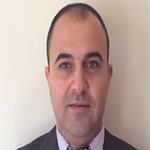היש ביסוס מחקרי להשערת הקשר שבין דלקות אוזן תיכונ
דיון מתוך פורום אף אוזן גרון
האם קיימים מחקרים שנעשו על מציאת הסיבה לקורלציה הכ"כ גבוהה הקיימת בין ילדים שסבלו מבעיות דלקות אוזניים חוזרות ונשנות בילדות המוקדמת ואבחונם מאוחר יותר כסובלים מבעיות של קשב וריכוז עם או בלי היפראקטיביות וקשיי למידה שונים? ADHD? אם יש ביסוס - היכן ניתן למצוא עליו מידע?
איני מכיר ביסוס מקובל, וגם לפי מיטב נסיוני אין קשר (למרפאתי פונים ילדים רבים בחשד ללקוי שמיעה, ובהמשך, בין השאר עקב מודעותי הגבוהה לנושא, מתברר כי מדובר בהפרעות קשב). בכל זאת צרפתי כמה מובאות לכאן ולכאן. זה בהחלט לא סקר ספרות ממצה. Otitis media in early childhood and cognitive, academic, and behavior outcomes at 12 years of age. Roberts JE, Burchinal MR, Clarke-Klein SM J Pediatr Psychol 1995 Oct;20(5):645-60 Examined the association between otitis media with effusion (OME) during the first 3 years of life and cognitive and academic performance and behavioral outcomes at 12 years of age in 56 socioeconomically disadvantaged children attending a research childcare program. OME history was prospectively documented from birth through 3 years during well and illness periods. Standardized tests of intelligence and academic achievement and measures of behavior were administered when children were 12 years of age. OME during early childhood was not related to intellectual performance, academic achievement, behavior, or attention. Results do not support a long-term relationship between a history of OME and later developmental outcomes. Generalizations of these findings to other populations should be done cautiously. Otitis media in children with learning disabilities and in children with attention deficit disorder with hyperactivity. Adesman AR, Altshuler LA, Lipkin PH, Walco GA Pediatrics 1990 Mar;85(3 Pt 2):442-6 A retrospective study was conducted to compare history of middle ear disease children with an attention deficit disorder with hyperactivity (ADD-H) and children with a learning disability. Of 138 children evaluated in a child development clinic, learning disability without ADD-H was diagnosed in 45 (29 boys, 16 girls; mean age = 9.5 years) and ADD-H without learning disability was diagnosed in 21 (17 boys, 4 girls; mean age = 8.5 years). Based on parental report, children with ADD-H had significantly more complaints of earaches during the preceding 3 months and significantly more ear infections during the preceding year. Specifically, no between-group differences were observed for total number of ear infections since birth, extended antibiotic therapy, tympanostomy tube placement, or recent hearing problems. Although middle ear disease in preschool children has repeatedly been linked to later language deficits, this study suggests that middle ear disease in school-age children may also be associated with hyperactivity and/or inattention, independently of learning disability. An association between recurrent otitis media in infancy and later hyperactivity. Hagerman RJ, Falkenstein AR Clin Pediatr (Phila) 1987 May;26(5):253-7 An association between the frequency of otitis media in early childhood and later hyperactivity is reported in this study. The subjects were 67 children referred to a child development clinic for evaluation of school failure. Ranging from 6 to 13 years old, all the children demonstrated specific school learning problems, and 27 were also considered hyperactive by two or more raters. Sixteen of the hyperactive children were treated with central nervous system stimulant medication. In retrospect, there was positive correlation between an increasing number of otitis media infections in early childhood and the presence and severity of hyperactive behavior. Ninety-four percent of children medicated for hyperactivity had three or more otitis infections, and 69 percent had greater than 10 infections. In comparison, 50 percent of non-hyperactive school-failure patients had three or more infections and 20 percent had greater than 10 infections. Twenty-two of 28 children (79%) known to have more than 10 infections experienced recurrent otitis before 1 year of age.
הבעיה העיקרית עם נוזלים באוזניים היא ההפרעה לשמיעה, מה שמשפיע על יכולת הקשב וההישגים הלימודיים ועלול ליצור בעיה תיפקודית, גם אם אין בעיה נוירולוגית!. אני מצרפת לינק לאתר שמסביר ומדגים את ההשפעה של לקות שמיעה ולו הקטנה ביותר, על תפקוד בכיתה. כמו כן , יש שם השוואה מענינת בין האפיונים של לקות קשב ולקות שמיעה. מומלץ. http://www.msu.edu/~huffma23

